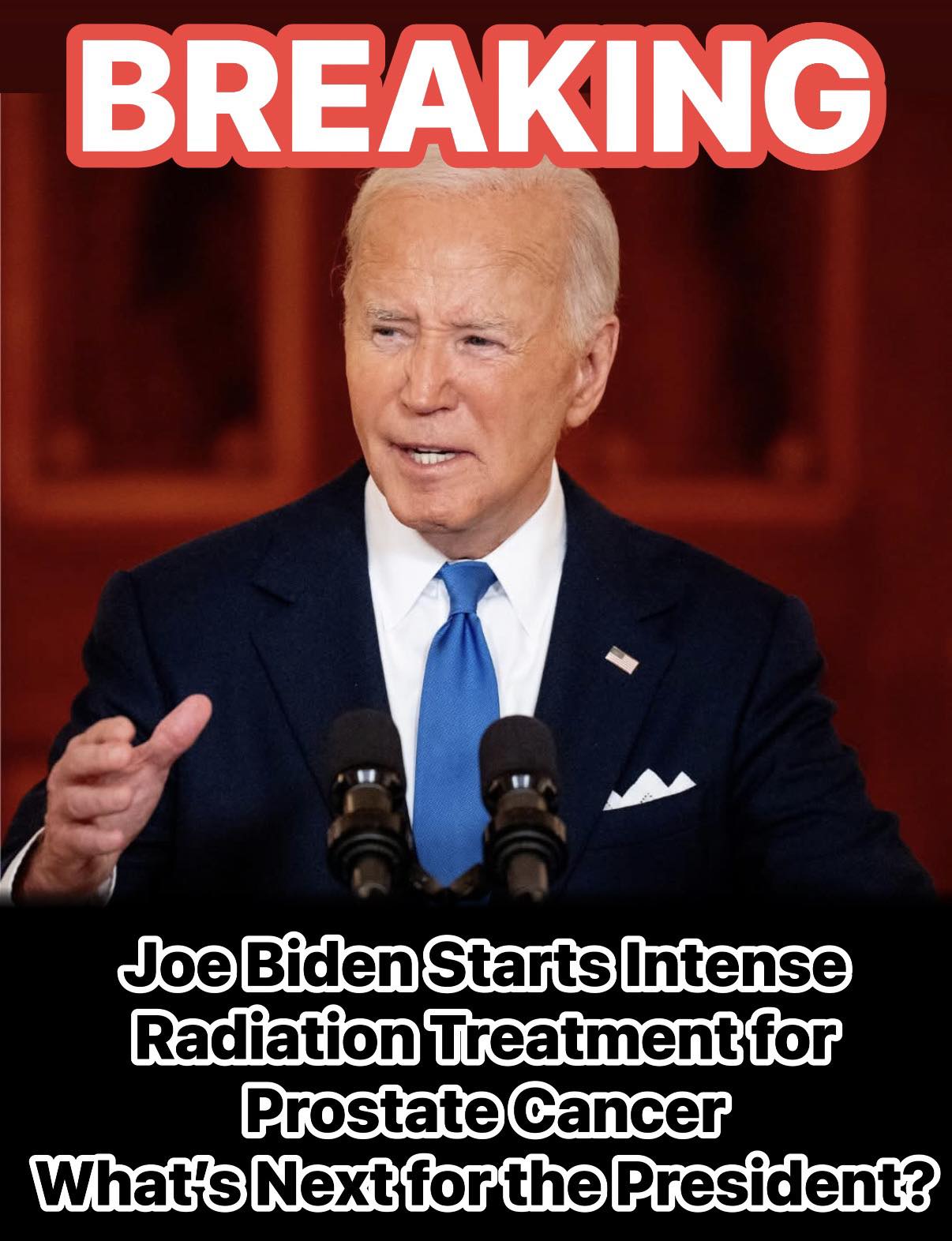Former President Joe Biden, 82, has begun a five-week radiation regimen as part of his ongoing treatment for prostate cancer, his office confirmed Saturday. The announcement marks the latest step in Biden’s months-long health journey since revealing his cancer diagnosis earlier this year.
According to a spokesperson who spoke with NBC News, Biden had already been prescribed hormone medication to help slow the cancer’s progression. The addition of radiation therapy represents an escalation in his care plan as doctors continue to monitor his response to treatment.
Despite the new therapy, Biden’s team insists that the 46th president is “doing well” and maintaining a positive attitude. “He’s in good spirits and responding as expected,” a spokesperson told The Post.
Biden’s office first made public his battle with an aggressive form of prostate cancer back in May, noting that his doctors were confident about his long-term prognosis. At the time, the announcement raised concern among supporters and critics alike, given the former president’s age and history of health challenges.
In September, Biden underwent a separate procedure to remove cancerous cells from his skin, which his physicians described as precautionary but successful. The multiple treatments have kept him largely out of the public spotlight since leaving office in January 2025, following one of the most turbulent political years of his career.
Health and Political Legacy
Biden exited the White House earlier this year as the oldest sitting U.S. president, leaving behind questions about his physical and cognitive health that intensified during his reelection campaign. His widely criticized debate performance in early 2024 prompted a wave of concern among Democratic strategists and ultimately led him to abandon his bid for a second term.
Since then, Biden has kept a low profile, focusing primarily on his health and spending time with family in Delaware. However, he has reportedly maintained communication with key Democratic figures, including California Governor Gavin Newsom, who served as one of his most vocal defenders during his final months in office.
According to The Washington Post, Biden has also been in contact with Rep. Alexandria Ocasio-Cortez (D-NY) and Sen. Bernie Sanders (I-VT) — two progressive icons who have remained influential in shaping the Democratic Party’s direction. Sources close to Biden describe these conversations as “friendly but policy-focused,” suggesting that the former president still sees himself as a guiding voice within the party, even while battling illness.
A Tale of Two Presidents
The update on Biden’s health came just hours after President Donald Trump underwent his own medical evaluation at Walter Reed National Military Medical Center. According to White House physician Navy Capt. Sean Barbabella, the visit was a “semi-annual physical” and part of Trump’s ongoing health maintenance routine.
Trump, 79, also received COVID and flu vaccinations ahead of his diplomatic trip to Israel and Egypt. Barbabella described the former president’s condition as “exceptional”, adding that his cardiac age — a measure that factors in cardiovascular health — was approximately 14 years younger than his actual age.
“President Trump remains in excellent physical condition and continues to meet all benchmarks for good health,” Barbabella said in a statement.
The contrast between the two former presidents’ health updates drew attention across social media, with supporters of both men offering prayers, praise, and speculation about what the future holds for each political titan.
Biden’s Fight and the Road Ahead
For Biden, the focus remains squarely on recovery. His team has declined to specify where the radiation treatment is taking place, citing privacy concerns, but insiders confirm that his doctors are “optimistic about his progress.” Radiation therapy for prostate cancer typically involves targeted treatments over several weeks, aimed at destroying remaining cancer cells and preventing recurrence.
Experts note that combining hormone therapy and radiation is a standard approach for older patients with aggressive or advanced forms of the disease. Side effects can include fatigue, urinary issues, and hormonal changes, though Biden’s office has emphasized that he continues to “remain active and engaged” in daily activities.
As he approaches his 83rd birthday next month, Biden is said to be spending much of his time surrounded by family, including First Lady Jill Biden and his grandchildren. Friends describe him as reflective but hopeful, occasionally revisiting his decades in public service and the legacy he hopes to leave behind.
“President Biden is taking things one day at a time,” said one longtime adviser. “He’s focused on his health and grateful for the outpouring of support from the American people.”
While the political spotlight may have dimmed, Biden’s quiet determination continues to inspire many who see his fight as another example of his lifelong resilience — from personal tragedy to political upheaval.
For now, the nation watches as two former presidents — once fierce rivals — navigate the realities of aging, health, and legacy in the public eye.
